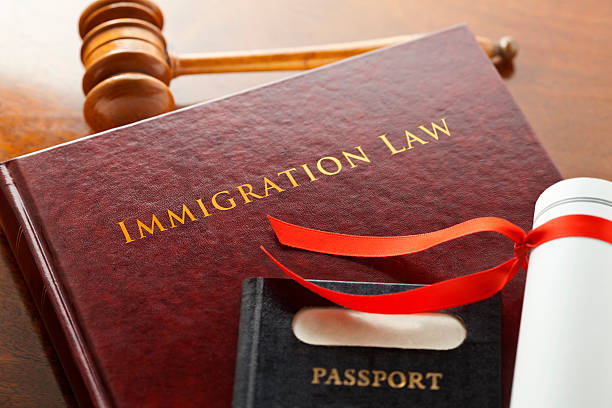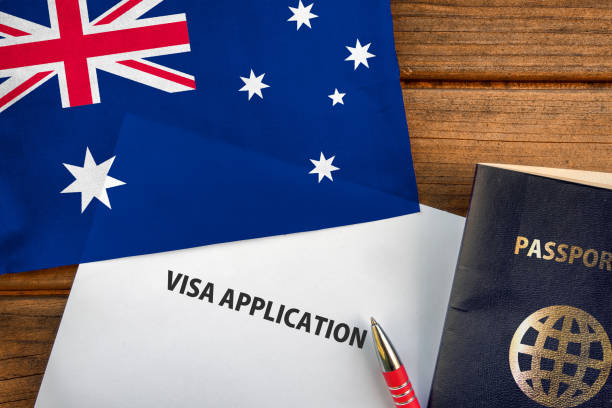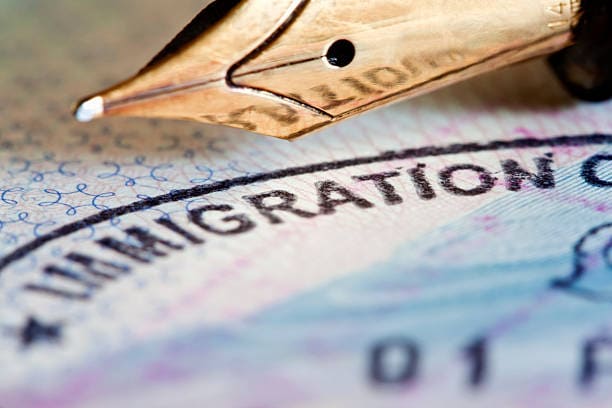This article will outline the Enforcement Visas Migration Act 1958. Enforcement visas may be applicable in various circumstances. This includes when a non-citizen faces immigration detention or poses a risk to national security or public safety. The Department may also issue enforcement visas to allow a non-citizen to remain in Australia temporarily. This is to assist with the enforcement of immigration laws.
Enforcement visas are generally temporary and are subject to strict conditions. The Department may cancel or revoke the visa if the non-citizen fails to comply with the conditions of the visa. They may also do so if their circumstances change. Non-citizens who hold enforcement visas:
- Do not have the same rights and privileges as other visa holders; and
- Have their stay in Australia subjected to constant review and monitoring by immigration authorities.
Read on to know about the different legislations and provisions of the Enforcement Visas Migration Act.
Section 164A: Definitions
Section 164A of the Enforcement Visas Migration Act contains relevant terms for this article. Below is a table that sets out the terms and definitions.
| “Commonwealth aircraft” | An aircraft in the service of the Commonwealth on which the prescribed ensign or insignia of the aircraft is displayed. Note: This definition is taken from Section 403 of the Environment Protection and Biodiversity Conservation Act 1999 |
| “Commonwealth ship” | A ship in the service of the Commonwealth on which the prescribed ensign of the ship is flying. Note: This definition is taken from Section 403 of the Environment Protection and Biodiversity Conservation Act 1999 |
| “Enforcement visa (environment matters)” | An enforcement visa that is granted by Section 164BA (More on this section explained below) |
| “Enforcement visa (fisheries matters)” | An enforcement visa that is granted by Section 164B (More on this section explained below) |
| “Environment detention” | Detention under Schedule 1 to the Environment Protection Biodiversity Act 1999. It states that environment detention is for people who are: Reasonably suspected by an authorised officer of having committed an offence involving a foreign vesselReasonably suspected by an authorised officer of having committed an offence in the Australian jurisdiction but outside |
| “Fisheries detention ” | A detention under: Schedule 1A to the Fisheries Management Act 1991; orSchedule 2 to the Torres Strait Fisheries Act 1984 |

Section 164B: Grant of Enforcement Visas (Fisheries Matters)
It outlines the circumstances under which the Department may grant an enforcement visa to a non-citizen in relation to fisheries offences. The sections consist of four parts:
- Non-citizen on foreign vessel outside migration zone: If a non-citizen is on a foreign vessel outside of Australia’s migration zone and the vessel is detained under section 69 of the Maritime Powers Act 2013 in relation to a fisheries detention offence, the non-citizen is granted an enforcement visa.
- Non-citizen in migration zone: If a non-citizen is in Australia’s migration zone and faces detention under Schedule 1A to the Fisheries Management Act 1991 or Schedule 2 to the Torres Strait Fisheries Act 1984, they get an enforcement visa.
- Non-citizen in prescribed circumstances: If a fisheries officer or a maritime officer exercises a prescribed power in prescribed circumstances in relation to a non-citizen who does not hold an enforcement visa, the non-citizen is granted an enforcement visa at the time the power is exercised.
- Non-citizen on foreign vessel in prescribed circumstances: If a fisheries officer or a maritime officer exercises a prescribed power in prescribed circumstances in relation to a foreign vessel on which a non-citizen is present, the non-citizen gets an enforcement visa at the time the power is exercised.
It also states that the grant of an enforcement visa cancels any temporary visa that the non-citizen may have held.
However, if a declaration by the Minister is in force that it is undesirable for a person or class of persons to travel to or enter Australia or remain in Australia, the Department will not grant an enforcement visa. This section does not apply to non-citizens who are Australian residents as defined in the Fisheries Management Act 1991.
Section 164BA: Grant of Enforcement Visas (Environment Matters)
Section 164BA of the Enforcement Visas Migration Act explains when a non-citizen can get an enforcement visa. This is under the Environment Protection and Biodiversity Conservation Act 1999. The circumstances under which a non-citizen may get an enforcement visa are if:
- They are on a vessel outside the migration zone. An environment officer, maritime officer, or another person in command of a Commonwealth ship or aircraft suspects that the vessel was part of an environment detention offence;
- They are in the migration zone and detained by an environment officer;
- An environment officer or maritime officer exercises a prescribed power in prescribed circumstances in relation to the non-citizen;
- An environment officer or maritime officer exercises a prescribed power in prescribed circumstances in relation to the vessel or aircraft on which the non-citizen is present.
An enforcement visa granted under this section effectively cancels any temporary visa the non-citizen may have held. However, a non-citizen will not get an enforcement visa if the Minister has made a written declaration that it is undesirable for them to travel to, enter or remain in Australia. This section does not apply to non-citizens who are Australian residents.
Section 164C: When Enforcement Visa Ceases to Be in Effect
Section 164C of the Enforcement Visas Migration Act pertains to the enforcement visa for non-citizens in detention for fisheries or environment-related offences. The enforcement visa allows non-citizens to stay in Australia temporarily while authorities process their matter. The section outlines the circumstances under which the enforcement visa (for either fisheries or environment matters) will cease to be in effect.
For non-citizens in fisheries detention, the enforcement visa will cease to be in effect upon their release or escape from detention, when the Minister makes a declaration under subsection 164B(7). This declaration is in relation to the non-citizen or a class of persons of which the non-citizen is a member, or on the occurrence of a prescribed event, whichever occurs first.
What about non-citizens who are not in fisheries detention? The enforcement visa will cease to be in effect when the Department makes a decision not to charge the non-citizen with a fisheries detention offence when the Minister makes a declaration under subsection 164B(7).
This declaration is also in relation to the non-citizen or a class of persons of which the non-citizen is a member, or on the occurrence of a prescribed event, whichever occurs first. The same conditions apply to non-citizens in environment detention and those who are not in environment detention but have enforcement visas for environment matters.
Section 164D: Applying for Other Visas
Section 164D of the Enforcement Visas Migration Act refers to the restrictions on individuals holding an enforcement visa in Australia. The provisions are as follows:
- While an individual holds an enforcement visa in Australia, they cannot apply for any other type of visa except for a protection visa. This means that they cannot switch to a different type of visa while they are in Australia, except for seeking protection as a refugee or asylum seeker.
- This section also states that even after the enforcement visa ceases to be in effect, the non-citizen who has held the visa may still not apply for any other visa except for a protection visa while they remain in Australia. This means that even if their enforcement visa expires, they still cannot apply for a different type of visa, except for protection as a refugee or asylum seeker.

Importance of Seeking Legal Advice
Enforcement visas can have serious implications on the rights and freedoms of non-citizens in Australia. Therefore, it’s important to seek legal advice from experienced immigration lawyers such as JB Solicitors. We can ensure that non-citizens are aware of their rights and obligations, and are able to navigate the complex legal framework surrounding enforcement visas.
Contact us today if you need more information.
